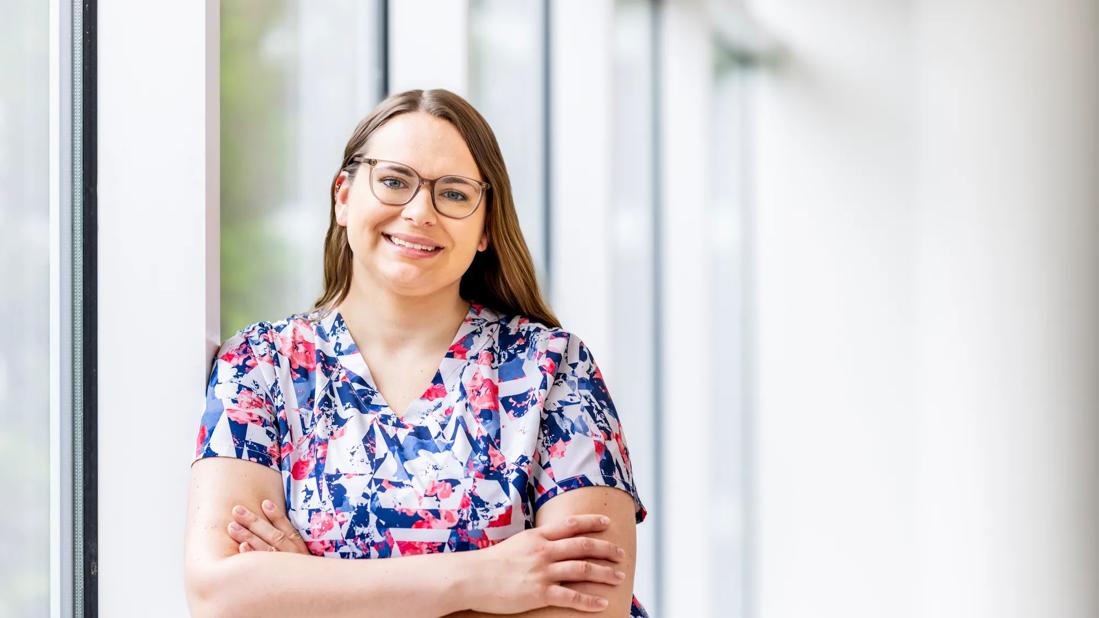Caring for patients and communities

Image content: This image is available to view online.
View image online (https://assets.clevelandclinic.org/transform/0028cbbe-56ac-4de9-abcd-6dc94bbef69a/NUR_169058_06-30-25_005_LDJ)
Community nursing
In the last decade, community health nursing has become increasingly important. As healthcare organizations have been focusing more on community health promotion, prevention and wellness, there’s been a clear and growing need for community health nurses.
Advertisement
Cleveland Clinic is a non-profit academic medical center. Advertising on our site helps support our mission. We do not endorse non-Cleveland Clinic products or services. Policy
Additionally, with the COVID-19 coronavirus pandemic spreading throughout communities at an exponential rate, the imperative and respected role of community nurses may be more evident now than it’s ever been.
For years, Cleveland Clinic has been offering community health services at locations such as the Langston Hughes Community Health and Education Center, which is located on Cleveland’s east side. The center promotes health and wellness that assists in prevention and management of chronic diseases and provides education to address social and mental issues in the community.
It offers free-of-charge services such as physicals, a women’s clinic, health screenings, prevention services, job and economic development education, as well as exercise classes, cooking demonstrations, smoking cessation, self-defense and more.
Registered nurse Angela Wilson works at the center, which is managed by director Chantel Wilcox and program managers Marsha Thornton and Chase Holmes. Wilson has been a community nurse for nearly 18 of her more than 30 years in the nursing profession. She says determining community health needs begins with an assessment to indicate current needs and implement corresponding strategies, which are continually evaluated for usefulness and effectiveness.
“At Langston, we are privileged to work with both internal and external partners – which may include physicians, nurse practitioners, social workers, registered nurses, registered dieticians and medical students – who collaborate to connect residents to the resources, programs and organizations that empower them to change their health, lives and communities,” Wilson comments.
Advertisement
In her role, Wilson serves a variety of patient populations, all of which are at least 18 years of age and older. She oversees clinical operations and says the type of care she delivers is based on each day’s schedule. For example, on days in which women’s services are offered, she prepares the center’s three exam rooms and triages patients, taking vital signs, height and weight measurements and more. She also performs blood draws, conducts urinalysis and pregnancy testing and addresses patient questions and concerns, working in partnership with her advanced practice provider colleagues.
Wilson says a big part of what she does is health education, noting she is both a nurse and community health educator.
Recently, she had the privilege of helping support the first cohort of Cleveland Clinic’s ‘Functioning for Life’ Functional Medicine initiative. The initiative offered a group of Langston Hughes patients access to a health coach, dietitian and physician assistant for 10 weeks. The program was designed to raise awareness about the necessity of lifestyle and behavior changes to help patients understand how to better self-manage conditions.
“People really embraced the program, attended regularly, and were engaged,” says Wilson. “This is the type of next-level innovation that is going to help transform healthcare in the communities we serve. It’s the kind of thing that makes being a community nurse both exciting and rewarding.”
According to Wilson, something else that makes community nursing an exciting career option is the flexibility it offers.
Advertisement
Like many community nurses, during the past few months, Wilson spent her time fulfilling new and urgent needs in the community due to COVID-19.
She was re-deployed as part of Cleveland Clinic’s dedicated COVID-19 positive patient outreach team. As part of this team, Wilson and her colleagues contacted patients who had tested positive for COVID-19 and followed them for 14 days. They assessed both the physical symptoms and mental status of each patient to help ensure the best possible outcome for every patient.
Wilson and her colleagues at Langston Hughes also worked tirelessly to disseminate information regarding community resources for families, such as child and elder care, food pantries and more.
For Wilson, community nursing was a natural fit.
“I think it’s important to love what you do,” she says. “Every day, I know that what I do is more than a job or a career – it’s a ministry because I deal with the whole person: their mind, body and spirit.”
Among other traits and skills, working in community nursing takes patience, advanced communication and organization.
For those considering a career in community nursing, Wilson says first conduct a personal assessment. She recommends composing short- and long-term SMART goals. She also suggests getting a mentor, shadowing someone in the field, and preparing to learn all you can about every facet of the job. Typically, a bachelor’s degree is required in community nursing (sometimes a master’s degree is necessary) so Wilson advises confirming nursing school accreditation as well.
Advertisement
Advertisement
Advertisement
Patients report improved sense of smell and taste
Clinicians who are accustomed to uncertainty can do well by patients
Unique skin changes can occur after infection or vaccine
Cleveland Clinic analysis suggests that obtaining care for the virus might reveal a previously undiagnosed condition
As the pandemic evolves, rheumatologists must continue to be mindful of most vulnerable patients
Early results suggest positive outcomes from COVID-19 PrEP treatment
Could the virus have caused the condition or triggered previously undiagnosed disease?
Five categories of cutaneous abnormalities are associated with COVID-19